The increased fuel efficiency and traction of front-wheel-drive cars make them a solid choice for commuters or Sportsters alike. With almost every major brand having one or more in the game, drivers have an array of options, features, and looks to choose from. It’s true that even the best front-wheel-drive cars are generally not as dynamic to drive as rear- or all-wheel-drive models, but there are plenty of front-drivers out there that are still worth a look.
We have pulled together the top 15 front-wheel-drive cars to show you just how diverse the selection is. Whether you prefer an A-class Mercedes Benz or a Mini Hardtop, there’s something for everyone here.
Volkswagen Arteon
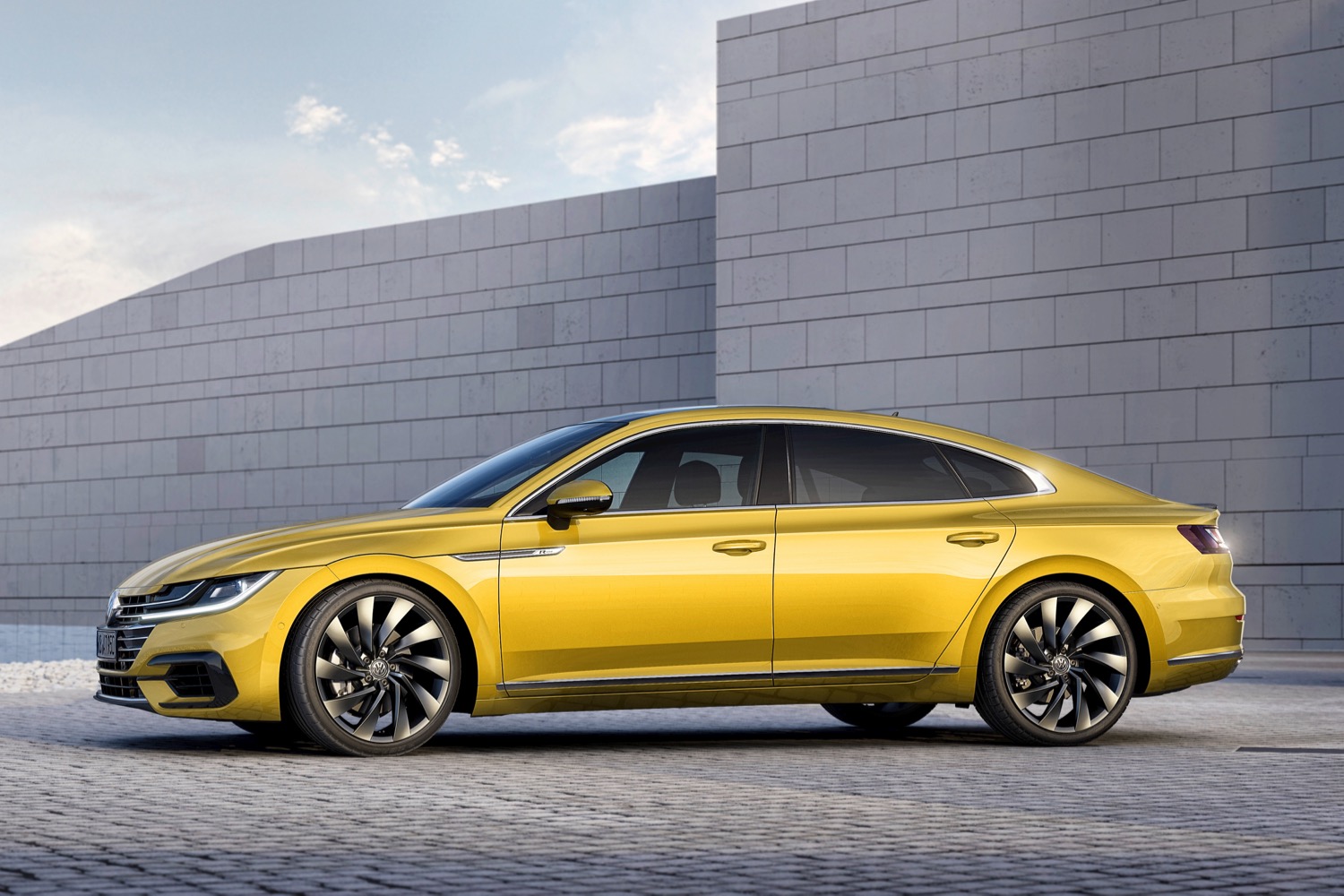
The Arteon proves you can have style and substance. The big VW’s main selling point is its sleek styling but, unlike the Arteon’s CC predecessor, that doesn’t come at the cost of interior space. A comfortable ride and quiet interior gives the Arteon a more upscale feel than other Volkswagen models, with more space and content than you would get in a similarly-priced car from a traditional luxury brand. The Arteon isn’t perfect: it is much better at highway cruising than corner carving. But if you want to do that, you can always get a GTI.
Volvo S60

Volvo hit a home run with its S90 full-size sedan, creating a car that was both luxurious and distinctive. The S60 takes what’s great about the S90 — its refined SPA platform, exquisite interior, and fuel-efficient engines — and adds a touch of sportiness. The S90 is a great car to be driven in, but the S60 is a great car to drive. Volvo was so committed to making the S60 sporty, in fact, that it made the sedan the template for its future performance plug-in hybrids. You can also get the S60 through the Care by Volvo subscription service, avoiding dealership hassles. If you need a bit more cargo space, Volvo also offers the V60 wagon.
Honda Accord

The Honda Accord has always been the default midsize sedan for many buyers, but the current generation really earns that popularity. Redesigned for the 2018 model year, the Accord gained some of the more expressive styling of the smaller Civic. The look may not be for everyone, but it’s more distinctive than the somewhat anonymous previous-generation Accord.
Under the skin, the Accord is one of the last cars of its type to offer a manual transmission, and you can even get a detuned version of the engine from the pocket-rocket Civic Type R in this family sedan. Alternatively, Honda also offers an Accord Hybrid capable of an EPA-rated 48 mpg combined. The Honda Sensing suite of safety features and an Apple CarPlay/Android Auto-compatible infotainment system give the Accord strong tech credentials as well.
Mazda 3

The Mazda 3 proves that driving an affordable, efficient compact car doesn’t have to feel like punishment. Mazda continues to prioritize driving dynamics and style, without ignoring fundamentals like utility, reliability, and safety. Why can’t other automakers be like Mazda?
Available as a four-door sedan or five-door hatchback, the Mazda 3 looks better than any humble economy car has any right to, with a design that looks like it could have been penned at Alfa Romeo. The interior has an upscale feel missing from most other cars in this price range. The 3 is no sports car; its 2.5-liter four-cylinder engine’s 186 horsepower is merely adequate. But the responsiveness of the engine and chassis set this Mazda apart from the competition. You can even get a manual transmission.
Nissan Leaf
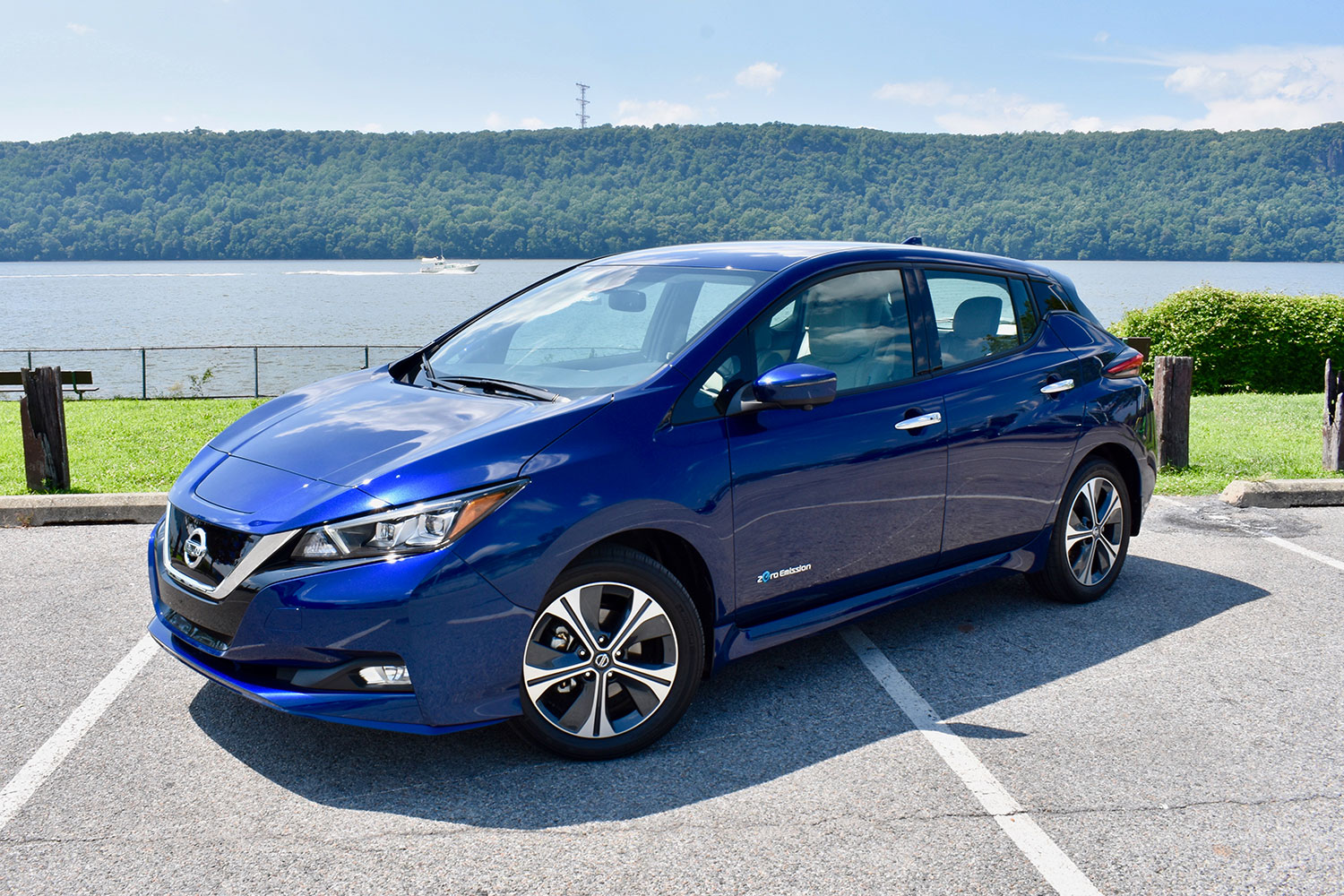
The Nissan Leaf proves that owning an electric car doesn’t have to be a big deal. The Leaf looks like a normal car (almost everything in it is lifted from Nissan’s gasoline models). Nissan’s clever e-Pedal system helps you get the most out of the electric powertrain. Because Nissan has been selling Leafs for about nine years — and working to install charging stations for almost as long — network coverage is second only to Tesla. The Leaf is also available with Nissan’s ProPilot Assist driver aid for highway traffic.
Nissan offers two options for potential Leaf buyers. The base model starts at $31,600 — undercutting most other electric cars. A 40-kilowatt-hour battery pack offers 149 miles of range. The Leaf Plus costs more, but it has a 60kWh pack that boosts range to a maximum 226 miles, as well as more horsepower and torque than the base car.
Mercedes-Benz A-Class
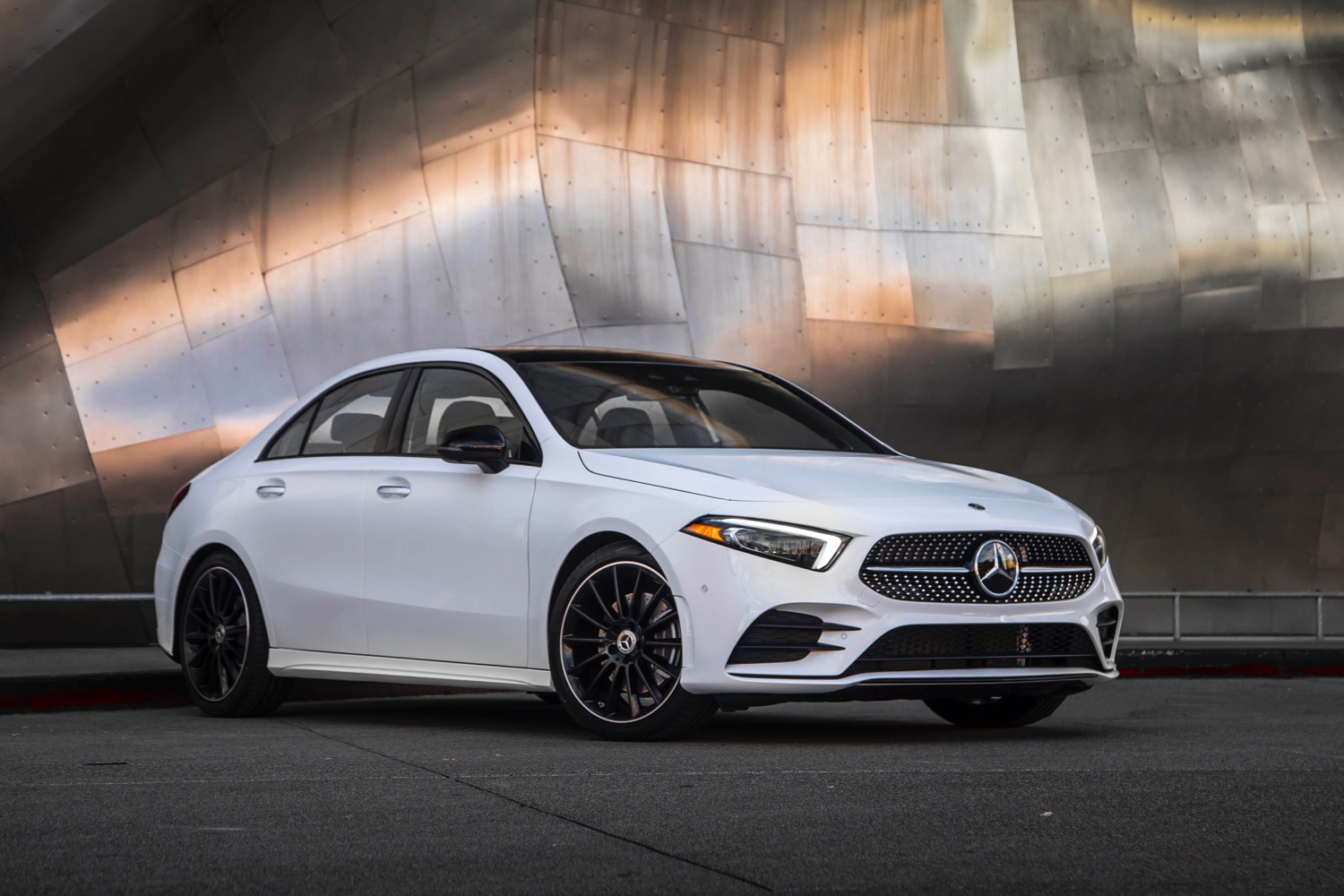
Unlike its predecessors, the latest generation of Mercedes compact car truly feels like one of the German luxury automaker’s traditional models. The A-Class sedan gets tech from bigger and more expensive cars, including the latest MBUX infotainment system. It features Apple CarPlay and Android Auto, as well as a voice assistant that responds to the prompt “Hey Mercedes.” The A-Class also gets the expansive dashboard screen previously seen on the E-Class and S-Class. If this sedan doesn’t do it for you, Mercedes also has the CLA-Class and GLB siblings.
Mini Hardtop
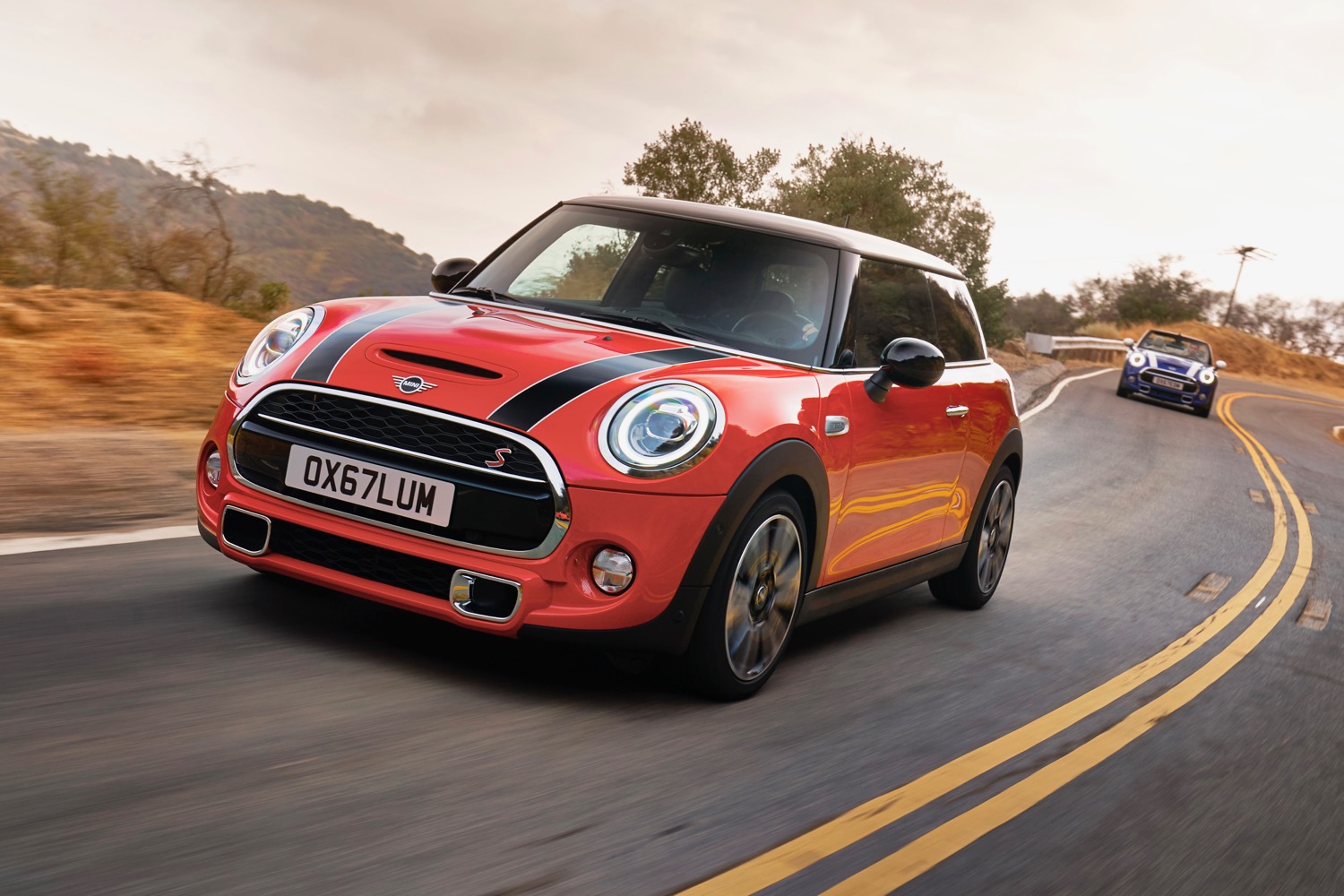
The Mini Hardtop traces its roots back to the original Mini, which still stands out as one of the most famous front-wheel-drive cars six decades after its debut. It’s much bigger than its truly tiny predecessor, but the fun-to-drive spirit has been retained over the years. Simply put, the Hardtop is one of the best bangs for your buck on the market.
The Hardtop comes in several flavors. Buyers can choose between a two- and a four-door model, and between a three- and a four-cylinder engine. Speed junkies will likely step up to the John Cooper Works GP performance model, which launched in 2020 with 301hp. Mini is also releasing an all-electric model for the 2020 model year. If the basic Hardtop doesn’t work for you, Mini also offers a convertible and the Clubman wagon, as well as the Countryman crossover.
Toyota Prius

The Toyota Prius is one of the most efficient front-wheel drive family cars on the market. Its styling certainly won’t please everyone, but it’s a spacious, quiet, and tech-focused way to get from point A to point B efficiently without breaking the bank. Gas mileage is this hybrid’s raison d’être, and it delivers with a maximum 56 mpg combined. The addition of Apple CarPlay/Android Auto and optional all-wheel drive have helped broaden the Prius’ appeal since the current generation launched as a 2016 model.
In addition to the standard Prius, Toyota offers the Prius Prime plug-in hybrid. While it shares a name and a basic platform with the original version, the Prius Prime takes the fuel-saving game to a different level. It can drive on electric power for up to 25 miles, at speeds up to 84 mph. The Prime is rated at 133 MPGe combined in electric mode, or 54 mpg combined on gasoline. It also has completely different styling, which may be a good thing or a bad thing, depending on your opinion of the standard Prius’ looks.
Volkswagen Golf GTI
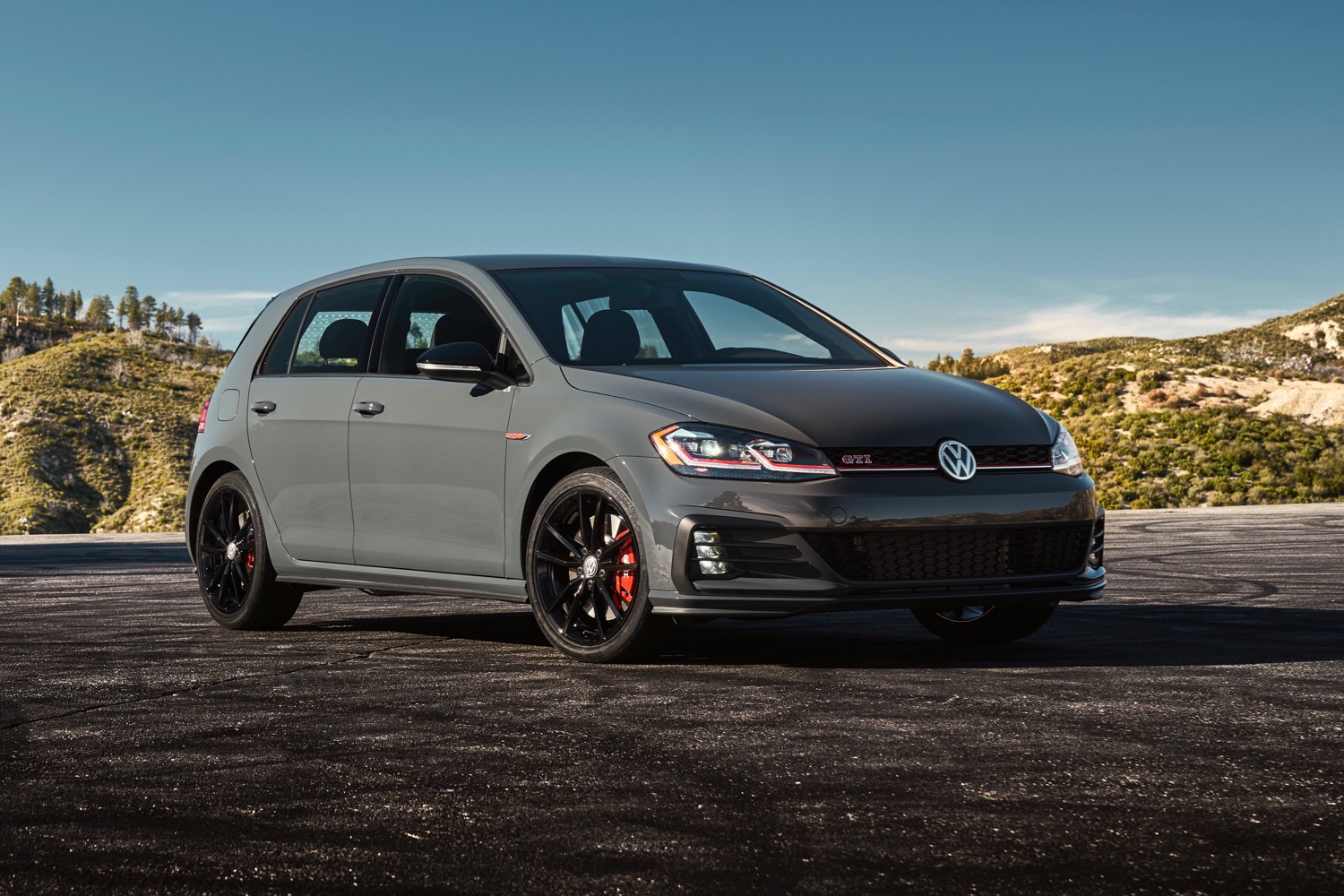
The Volkswagen Golf GTI has been the poster child for fun, front-wheel-drive cars for generations. By taking an ordinary Golf and adding some spice, VW created the recipe for the modern hot hatchback. The current model packs a turbocharged 2.0-liter four-cylinder engine that makes 228hp and 258 lb.-ft. of torque. That’s enough for spirited driving, but not enough to generate an alarming amount of torque steer. You can shift yourself with a six-speed manual transmission, or opt for VW’s lightning-quick seven-speed DSG dual-clutch automated gearbox.
The GTI has a sensible side, too. It’s good on gas, especially for a performance-oriented model, and its hatchback configuration allows it to comfortably carry four adults or haul bulky items by simply folding down the rear seats. The upcoming eighth-generation 2021 VW GTI will have more power and technology.
Chevrolet Bolt EV
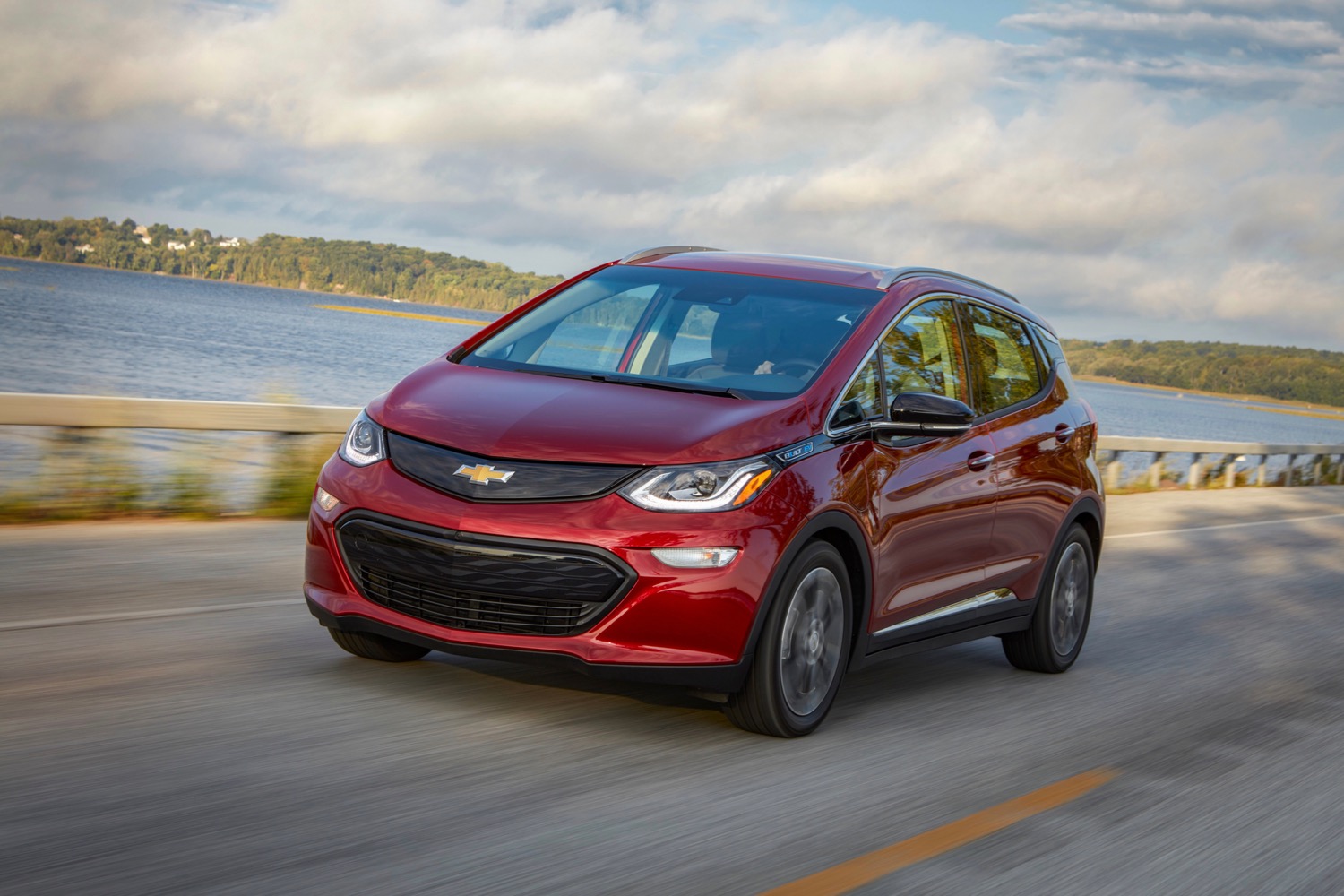
Chevy set the standard for mass market electric cars when it launched the Bolt EV. The little hatchback was the first to hit the market with a range of more than 200 miles and a base price below $40,000. A 2020-model-year update gave the Bolt EV 259 miles of range, which is high for the price point. The Bolt EV is also an overall good car. It’s not as flashy as a Tesla Model 3, but offers a solid amount of tech, a decent amount of passenger and cargo space, and nimble handling owing to its small size. It makes a strong case for electric cars.
Hyundai Elantra GT
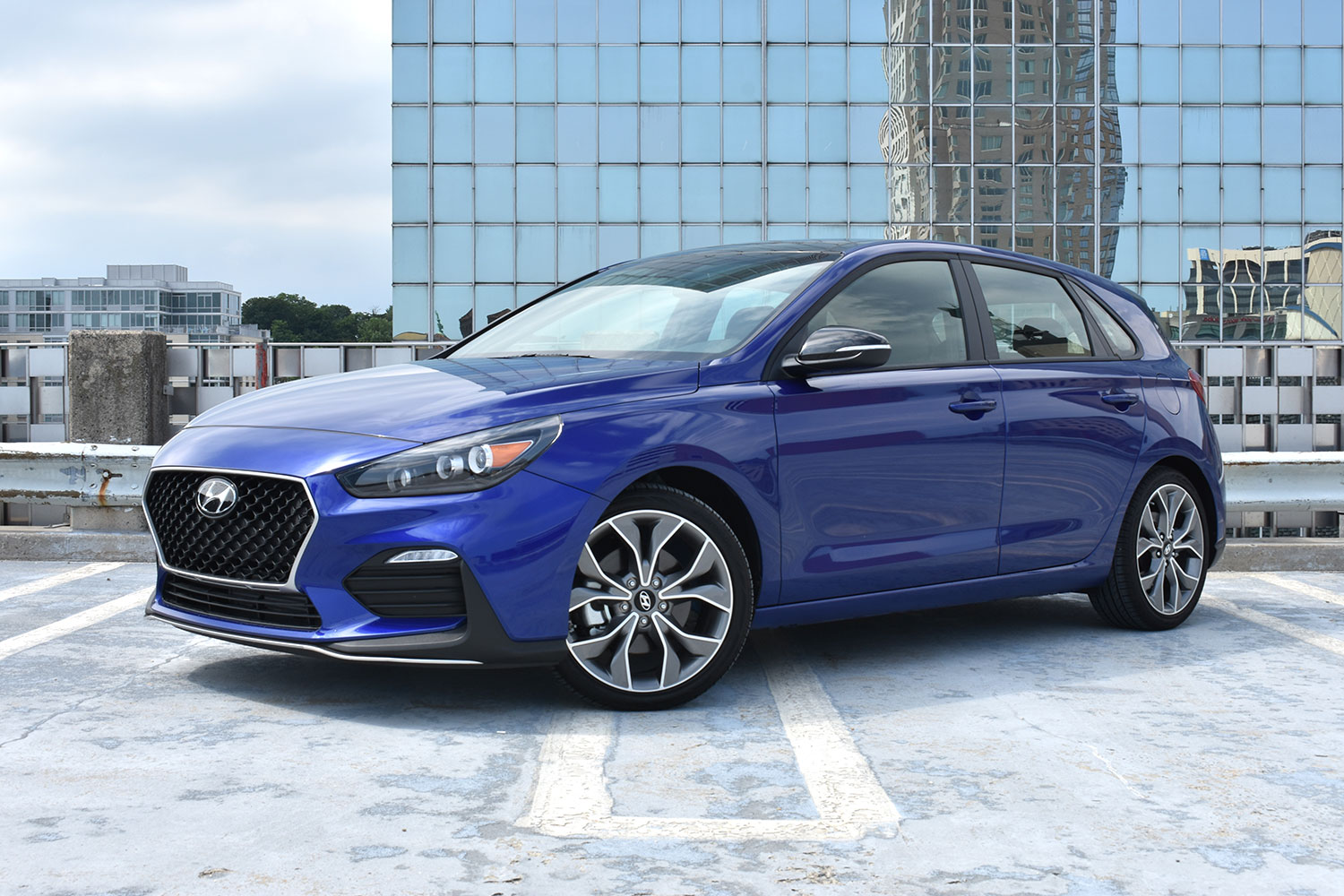
Available in standard sedan or GT hatchback form, Hyundai’s Elantra doesn’t have the name recognition of the Honda Civic or Toyota Corolla. That’s a shame, because the latest generation is more than a match for those titans of the compact car segment. The basic platform strikes a good balance between handling fun and ride quality and, in GT N-Line form, you get a 201-hp turbocharged engine that makes this Hyundai legitimately sporty. Add in Hyundai’s excellent reputation for reliability and strong warranty coverage, and you get a great value.
Honda Civic Type R

The Honda Civic Type R is simply the most fun you can have with front-wheel drive today. Through sheer engineering wizardry, Honda managed to build a high-performance front-wheel driver that doesn’t show a hint of torque steer, even with 306 hp and 295 pound-feet of torque. Steering feedback is accurate, making it a joy to drive on the track and a dream to hoon on windy back roads.
The Civic Type R is so good in part because it was built on a solid foundation. The current-generation Civic is fun to drive even without the Type R’s fire-breathing engine, and doesn’t have the tinniness that used to plague economy cars. The Type R also inherits the base Civic’s practical five-door hatchback body and creature comforts, albeit wrapped in polarizing styling. With its scoops, wings, and other jewelry, the Type R isn’t for everyone. But blending in is no fun.
Acura TLX

In the 1990s and early 2000s, Acura was the BMW of front-wheel drive. Cars like the Integra Type-R and TSX proved that luxury cars don’t have to be rear-wheel drive. New NSX aside, Acura’s edge has dulled a bit since then, but the TLX still has some of that old magic. It also gets a dose of tech that wasn’t available during Acura’s glory days.
The base front-wheel drive TLX uses a 2.4-liter four-cylinder engine making 206 hp, coupled to an eight-speed dual-clutch transmission. A 3.5-liter V6 making 290 hp is also available, but you have to trade the dual-clutch gearbox for a more conventional nine-speed torque-converter automatic. The TLX also gets rear-wheel steering (front-drive model only) — a rarity on a car in this price range. An optional A-Spec package adds sportier exterior styling elements and some well-bolstered sport seats.
It’s worth mentioning that the Acura also comes available with the optional, superior handling, All-Wheel Drive system. If you have your heart set on a front-wheel-drive model, you may be missing out on some next-level handling.
The upgraded drive train does an excellent job keeping the TLX neutral in corners. If you want the best in performance, it’s well worth a look. For everyone else, the front-wheel-drive models still offer plenty of value for the money. Acura will soon launch a sportier TLX Type S model as well.
Nissan Versa

The Versa may not be the most exotic front-wheel drive in our test, but it may be the most practical. A competitive price point, excellent fuel economy, and unfailing reliability make it a worthy alternative to some of the more expensive cars in our test.
Nissan has also added all the necessary creature comforts that make the Versa a joy to drive. In fact, this car comes with more standard driver-assist technology than competitors, and the Versa is the only car in its segment to offer adaptive cruise control at any price.
The Versa is similar to the Nissan Altima but slightly smaller. Like the Altima, it has a unique style that sets it apart from other sedans. If you’re looking for a budget-friendly car that will also stand out in a crowd, the Versa may be an excellent pick for you.
Kia Niro
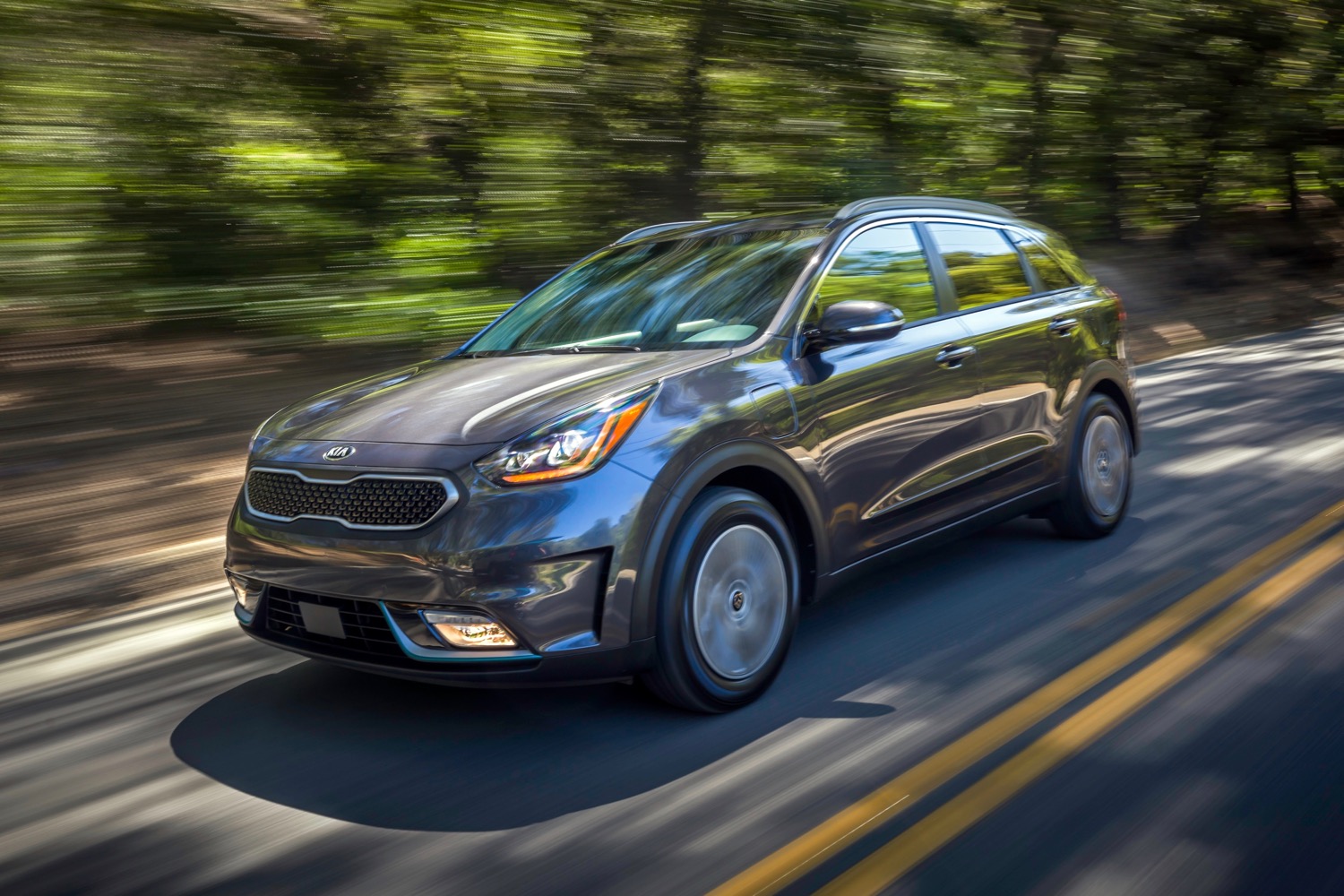
The Niro is perfect for anyone looking for a greener, fuel-efficient vehicle. Kia’s eco-friendly Niro comes in three different options on powertrains – hybrid, plug-in, and all-electric.
While the Niro cuts down on emissions, it doesn’t skimp on practical comforts. The Niro is a great car for road trips or long drives, with a comfortable interior, ample cargo space, and higher ceilings. Kia also offers a generous warranty on the vehicle, which may help some budget-conscious customers make the jump to eco-friendly.

